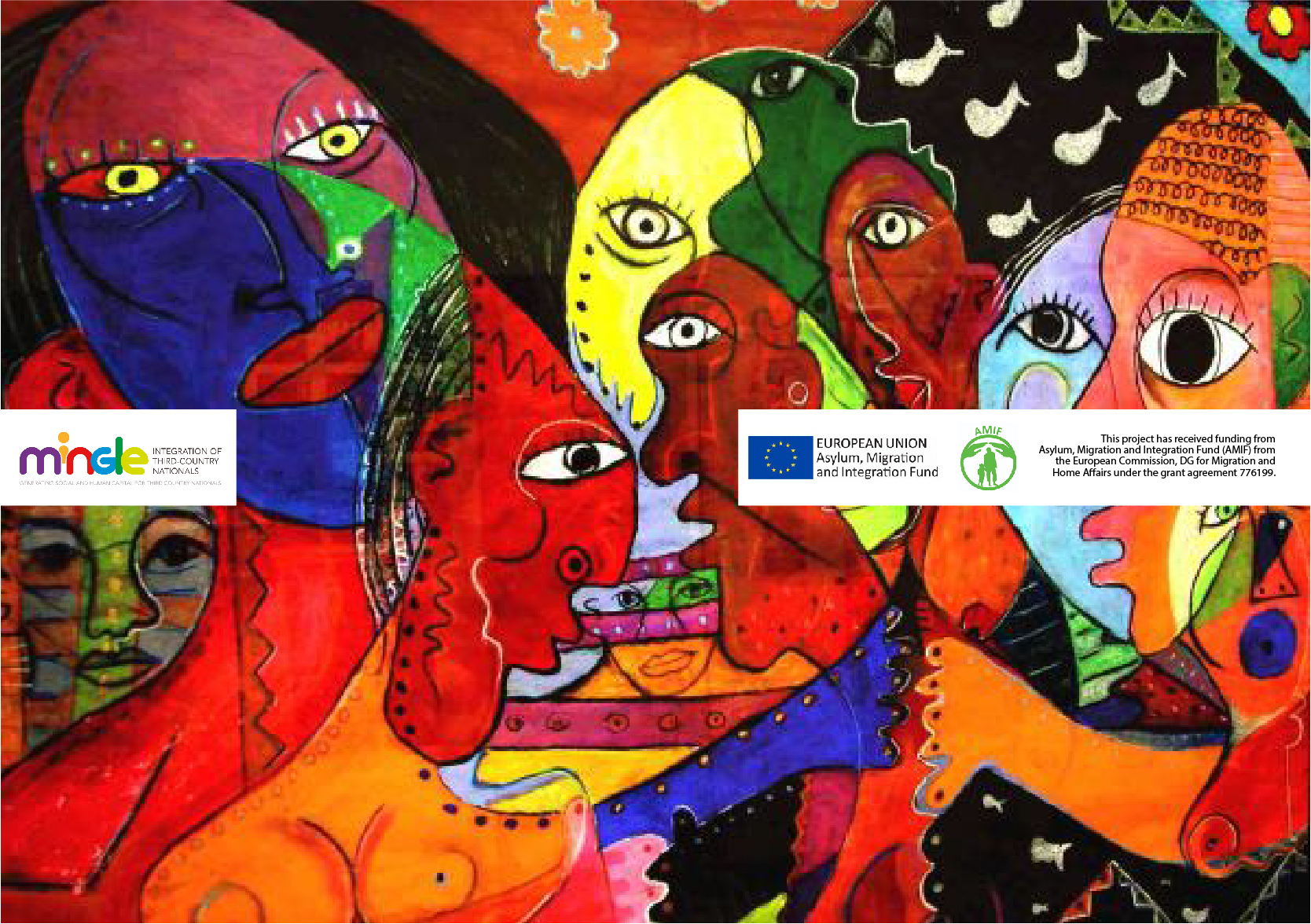The mentor training was especially important to us because it was necessary for us to prepare the mentors for the following mentoring sessions. For this purpose, we did not postpone the mentor training but conducted it as an online seminar due to ongoing COVID-19-regulations. The training sessions reiterated our ideas about the content and overarching objectives of MINGLE. Another important point was to explain attendees the role of mentors and mentees in detail aswell as tasks and limitations of mentoring.
The points of intercultural communication, cultural identity, and stereotypes were covered in the presentation and discussed in the group. We also used adjusted exercises and activities from the EMKIT (adjustments were necessary to the online platform of the training) to make future mentors more aware of their concrete role. At the end of the webinar, all mentors were in general clear about their roles. Any remaining ambiguities were solved by an extensive Q&A-session.
Aim of the best practice:
The goal of the training as a webinar form was to convey to the mentors what their tasks can be and what the concrete role of a mentor is.
It had to be worked out what a mentor is, what a mentee is and how successful mentoring can take place in the future. It was also important to explain the extent to which mentoring differs from coaching.
Objectives of the best practice:
Achieving a satisfying result in this work package was very important, as it lays the foundation for the final mentoring-sessions. It was also necessary to assess the skills of the future mentors to ensure fitting mentor-mentee constellations.
A mentor should listen well, ask fitting questions, guide, motivate, create trust, and inspire. In addition to all these positive qualities, it had to be made clear that there can be limits in the process and in the task of a mentor and that the mentor is not “a problem-solver for everything”.
Also, possible ends of mentor-mentee-relationships was discussed in the webinar and understood by the participants. But the goal was to avoid pitfalls and reach the level of social participation.
GFBM gGmbH:
Trainers for webinars: Roberto Colis /Sonja Biering
Organisator: Sonja Biering
Metropolis.net:
Trainers for webinars: Antonia Restemeier
Organisator: Antonia Restemeier
Min: More than 20 mentors
Max: undefined
At the end of June, before the start of the planned mentoring, we were able to implement two webinars. Our trainers attached great importance to covering as many foreseeable aspects of mentoring as possible. For mentors to familiarize themselves with the subject matter in advance, they were sent a PowerPoint presentation which summarized the most important aspects on 21 slides.
The preparation time for the presentation and the webinar lasted several days. Especially the selection of the activities needed some time, because some exercises could not be implemented due to the online-format and a lot of adjustments or changes were made in general.
Since the mentors all have a high level of education, our trainers were able to include units on intercultural communication (stereotypes and conflicts), as well as foreign perceptions and prejudices in the webinar. The webinars were scheduled for a duration of about 3 hours.
Two of our trainers led the webinars. Antonia Restemeier from metroplois.net supported us a lot and coordinated the mentors. We used our company laptop and the internet connection. The used conferencing tool was Cisco-WebEx. The mentors used their PCs, either from home or in their offices. Since everything was online, we used the classroom tools of Cisco-WebEx and Microsoft Powerpoint.
As described above, it was very important to organize these mentor training sessions even during the COVID-19-regulations. We perceived that implementing the mentor trainings without a bigger delay would net a better mentor retention for the MINGLE-project as it would display a reliable project organization.
Without the non-delayed implementation, we would not have been able to inspire interested locals or to make them understand the specific tasks of mentoring. The implementation of this training was essential for a successful mentee-mentor relationship.
Targeted preparation in the form of a workshop for TCNs shortly before the actual mentoring would be greatly beneficial, because the participants also change, old ones drop out and new ones join. So not every TCN entering the project at a later point has the same previous knowledge of what mentoring is in detail. It also helps to direct expectations to a realistic level by discussions in advance.
